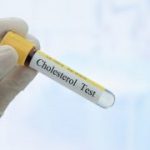 February is American Heart Month, which is the perfect time to brush up on your heart health knowledge. Check out some of Bel Marra Health’s latest articles that provide information on enlarged hearts, the risk of heart attack, how sleep effects the heart, as well as cholesterol ratios and why they’re important.
February is American Heart Month, which is the perfect time to brush up on your heart health knowledge. Check out some of Bel Marra Health’s latest articles that provide information on enlarged hearts, the risk of heart attack, how sleep effects the heart, as well as cholesterol ratios and why they’re important.
Enlarged heart (cardiomegaly): Causes, symptoms, diagnosis, and treatment
Cardiomegaly (enlarged heart) isn’t a disease on its own, but rather a symptom of another condition. An enlarged heart can be seen on X-ray images, but additional tests are required to determine the exact cause of cardiomegaly.
Advertisement
Cardiomegaly can be temporary or chronic, depending on its underlying cause. In many cases, cardiomegaly is a treatable condition, but it’s important that you see your doctor at the first sign of the condition.
The main type of enlarged heart is dilated cardiomyopathy, where both ventricles of the heart become stretched and thin. Another type is hypertrophic cardiomyopathy, where the walls of the heart become very thick—it is an inherited condition. An enlarged heart can function better when it is thicker, compared to when it is thinner. Continue reading…
 Prescription pain relievers may increase heart attack risk
Prescription pain relievers may increase heart attack risk
Commonly used and prescribed pain relievers could increase your risk of heart attack if they are taken while you have a cold or flu-like sickness. Non-steroidal anti-inflammatory drugs, or NSAIDs, can be prescribed to reduce the symptoms associated with acute respiratory infections, but the findings of a recent study show that using these medications while you have a respiratory infection may also increase your chance of having a heart attack.
Researchers reviewed claims from Taiwan’s National Health Insurance Program submitted over seven years, from 2005–2011, and examined whether two cardiac risk factors could have a combined effect on heart health. The risk factors investigated were having an acute respiratory infection such as a cold or flu, and the use of NSAIDs. After comparing patients’ heart attack risk over time, over episodes of combined NSAID use and respiratory infection, the team found a stronger association with heart attacks occurring when both factors were present as opposed to the presence of just one or neither. Continue reading…
 Timing and planning of meals could impact heart health
Timing and planning of meals could impact heart health
The American Heart Association’s journal, Circulation, has asserted that the timing and planning of meals could impact your heart health. Habits including eating breakfast and planning when you will eat your meals and snacks are associated with healthier diets, which may help to reduce your risk of developing cardiovascular disease. The frequency and time that people eat may also affect risk factors for heart attack, stroke, and other cardiac and blood vessel diseases.
Dr. Marie-Pierre St-Onge of Columbia University explained how meal timing can affect animals, stating “Meal timing may affect health due to its impact on the body’s internal clock. In animal studies, it appears that when animals receive food while in an inactive phase, such as when they are sleeping, their internal clocks are reset in a way that can alter nutrient metabolism, resulting in greater weight gain, insulin resistance and inflammation.” The timing of food intake may affect the way the body processes it, potentially increasing risk factors for conditions associated with heart health. Continue reading…
 Sleep and the heart: Not enough or too much sleep affects your heart
Sleep and the heart: Not enough or too much sleep affects your heart
Highly demanding jobs often result in intense stress that may affect an individual’s mental health and capacity for sleep. For some people, the use of natural sleep aids may help alleviate the symptoms of stress and other mental health conditions attributable to difficult jobs, whereas for others, the high stress levels at work may destroy one’s quality of life.
According to a recent study published in the Journal of Applied Physiology, the lack of sleep due to stress may not only result in poor mental health, but also in cardiovascular problems.
Advertisement
The research study conducted by investigators at Michigan Technological University involved the application of 24-hour sleep deprivation to approximately 28 young individuals, of which 14 were men and 14 were women. The study was conducted in order to determine the impact of stress on cardiovascular disease. The researchers hypothesized that sleep deprivation directly affects mental health, which in turn may affect the heart health of the individuals. The heart health of the study participants was monitored in terms of blood pressure, heart rate, and reactivity of specific nerves after the experimental period of sleep deprivation. Continue reading…
 Know your cholesterol ratio to prevent heart disease risk
Know your cholesterol ratio to prevent heart disease risk
Balancing your HDL—good cholesterol—and LDL—bad cholesterol—is important to help reduce the risk of heart disease and stroke, but how can you manage your cholesterol ratio? Read on to discover why a healthy cholesterol ratio is important, as well as how to calculate your cholesterol ratio, ideal ratios, the pros and cons of total cholesterol testing, and how often your levels should be checked. Continue reading…
Related: National Wear Red Day: Heart artery dysfunction, heart disease risk, heart attack mortality in women
